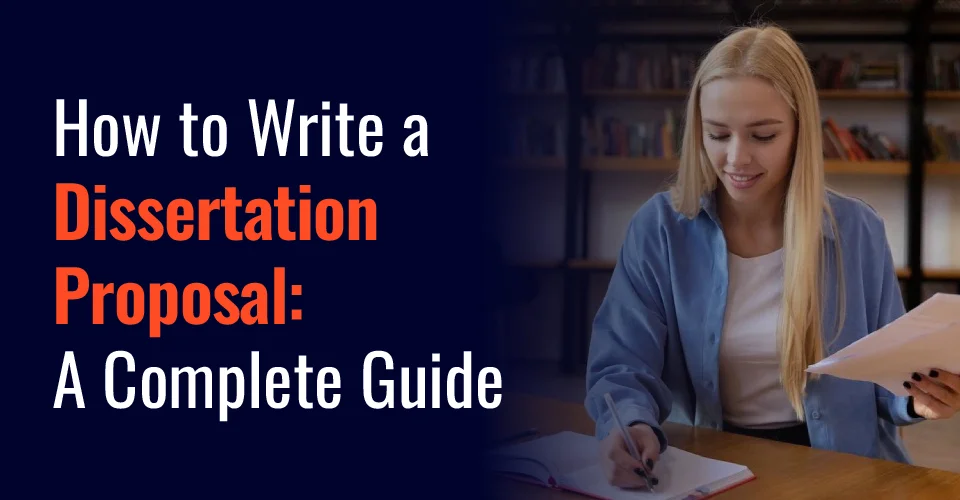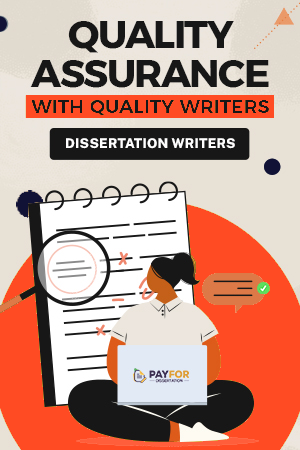
How to Write a Dissertation Proposal: A Complete Guide
Summary: The writing of a dissertation proposal is a critical step toward research in academics as it sets the basis of an entire dissertation. Students find this process challenging as it is a process that needs a lot of planning, writing in a fixed, somewhat formal manner along with stricter research direction. A good proposal will not only help you to get a clear idea about your research but also convince your academic committee about its importance and achievability.
A dissertation proposal format must be well structured so that you may properly present your research. A good proposal should include an introduction, literature review, research questions, methodology, results, implications, expected outcomes, and references. This is based on a logical format that simplifies the reading of your proposal and increases the chances that your proposal will obtain approval from your academic committee.
Understanding how to start a dissertation proposal is the first hurdle. Some students are unable to define their research question and at the same time, they also find it difficult to structure their methodology. From coming up with an interesting research problem to preventing common pitfalls, this guide shows you the way at each stage of the proposal preparation process so that your proposal stands out. This guide serves as a roadmap for working on a dissertation for any field, particularly social sciences and business.
Understanding the Purpose of a Dissertation Proposal
A dissertation proposal can be considered as a research plan. It has a topic, objectives, methodology, and result expectations for your study. The fact that many students take it for granted and see it as a mere formality hinders researchers as it has a very pivotal role in securing the approval of your research. The thesis proposal will then be used by universities to test whether your dissertation idea is viable, original, and academically valuable.
The importance of a dissertation proposal goes beyond getting approval. Having a well-structured proposal will help keep focus during research. It also allows your supervisors to give you valuable feedback before they’re charged with months of you putting their feedback in place. Your proposal should provide answers to the questions that essentially are related to ‘What problem does your research solve’? Why is it significant? How will you approach it? Getting the answers to these properly allows the success of the dissertation.
Key Components of a Dissertation Proposal
The structure of a strong dissertation proposal is what you need. Despite the uniqueness of universities, most of the proposals would follow the same framework of an introduction, literature review, research questions, methodology, expected results, timeline, and references. It paves the path by introducing your topic, research question as well as the objectives. The current literature review exposes the existing research, which lacks in the areas that you then decide to look into in your study.
The section on research questions and hypothesis development ensures clarity in what your study seeks to explore. The methodology presents the research design, data collection, and data analysis procedure. Finally, the last section contains the expected outcomes and significance, which describes the potential impact of your research. A well-structured proposal would make the research process easier and also make the approval likely.
Writing a Strong Research Problem Statement
The research problem statement is central to your proposal. It deals with the issue your dissertation will be exploring and will argue why this is relevant. This is the step many students struggle with, making their problem both too broad and too narrow. The statement should be well-defined about the issue highlighted and, if possible, incorporate background context and a statement regarding the urgency or need for further research.
An example of a dissertation on digital marketing effectiveness would not be talking about social media being important without giving supporting information to back that up. Rather, it should indicate what aspects of digital marketing are under-researched and how studying them will lead to academic knowledge. If you are unsure about formulating your research problem, you might consider seeking academic support or exploring pay for dissertation services to refine your ideas.
How to Define Clear Research Objectives
Your study is provided with direction through the research objectives. If your dissertation lacks focus and coherence, it may largely be due to unclear objectives. Specific, measurable, achievable, relevant, and time-bound are the good research objectives. Try to avoid verbose goals such as “exploring the social media trends” and stick to something such as “processing the effect of influencer marketing on the brand engagement of the UK university students.”
Well-defined objectives also help in writing a research proposal for a dissertation that is logical and convincing. They help you formulate specific research questions and hypotheses which then make your research well structured and academically sound.
Choosing the Right Research Methodology
Your proposal’s methodology section is very important. This describes how you are going to do your research and why your chosen method is the best suited for your research. Regardless if it is qualitative, quantitative, or mixed methods, your methodology should make the process of data collection, sampling as well as data analysis clear.
For example, if you’re dealing with consumer behavior, surveys, and focus groups will do. However, when doing a historical study, archival research and document analysis might be more suited. What is the right methodology to adopt will guarantee your credibility in your research, and the credibility of your findings will be reliable and valid. If you struggle with this section, consider reviewing academic resources on structuring a proposal for academic research for guidance.
Tips for Writing a Compelling Proposal Introduction
As such, the introduction of your research paper is the first thing that your academic reviewers will read so you must make it interesting. 1. A good introduction begins with a good attention grabber, provides necessary background info, and states (explicitly or implicitly) the research question and objectives. It should also point out the importance of the study and explain why investigating such matters is crucial.
One of the most common mistakes students commit is giving too much background information and not enough emphasis on the research question. Keep the introduction short and sweet yet informative enough to give readers an excellent foundation for the rest of the proposal.
How to Structure Your Dissertation Proposal
When it comes to step-by-step dissertation proposal writing, following a logical sequence can make the process easier. Most proposals follow this format:
- Clearly stating your research title, your name, and your university details are required to be mentioned on the title page.
- Abstract: Summarize your research question, methodology, and expected outcomes in a short paragraph.
- Introduction: Introduce the topic, research problem, objectives, and significance.
- The literature Review: Review past and current research and identify new gaps your study will try to study.
- Research questions and hypotheses regarding the topic you want to deal with in your dissertation.
- Methodology: Describe the research design, data collection methods, and analysis techniques.
- Expected outcomes: mention what you expect to achieve as well as how the study can have an impact.
- Research timeline: include what would need to be researched, the main websites to review, and a plan for continuing your research.
- References: Give a list of your academic sources used in supporting your proposal.
Following this structure will guarantee clarity, coherence, and professionalism in your proposal.
Common Mistakes to Avoid in Dissertation Proposals
Students who are not even well prepared in writing their proposals can make errors. One common mistake is not being able to clearly articulate the research problem and thus having a weak and unfocused study. Another problem is that you have unrealistic objectives at an unattainable level within the amount of time the dissertation will take you.
The proposal can also be brought down by the poor organization. Reviewers will not find it easy to understand the research direction if the proposal is not well structured. Many students also ignore the supervisor's feedback and end up redoing unnecessary work. A second pitfall is that you do not reference correctly. Credible sources should corroborate every claim in your proposal. In case you don’t know how to reference, you can, but it is advisable to get assistance from university assignment writing services.
Final Thoughts
The process of preparation of a dissertation proposal needs time, effort, and good planning. Understanding how to start a dissertation proposal is essential for crafting a clear and convincing research plan. If your proposal is well structured, it will enable you to get academic approval which will also set the roadmap for the dissertation journey.
By focusing on step-by-step dissertation proposal writing, defining clear objectives, and choosing the right methodology, you can ensure your proposal stands out. While research can be quite challenging, it is something that can be dealt with using the correct approach.
Also, academic assignment help for university students are resource where you can seek guidance if you feel you cannot cope. Using external support or working on your own, you will ultimately have a more successful and impactful research study if you spend your time crafting a strong dissertation proposal.
